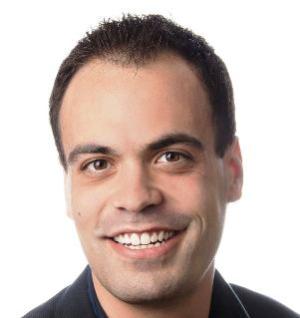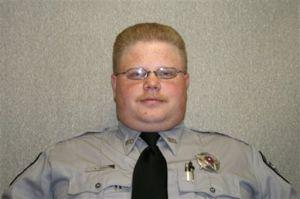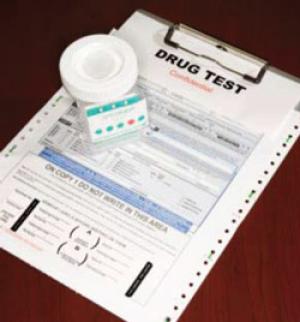It has been a historic day in Denver, with the first legal retail sales of marijuana having taken place early this morning. It's a new era.
Adult marijuana sales become legal tomorrow in Colorado, but would-be retailers are having to deal with some bumps in the road.
Uruguayan President Mujica has signed that country's groundbreaking marijuana legalization bill into law. The government now has 120 days to craft rules, and then Uruguay's era of legal marijuana commerce will commence.
Florida's law mandating the suspicionless drug testing of welfare applicants has been found unconstitutional by a federal district judge. Gov. Rick Scott (R) says he will appeal.
The dispensary and cultivation wars continue in California, dispensaries are delayed in Nevada, a bill moves in New Jersey, and more.
The Alaska marijuana legalization initiative signature-gathering campaign has gathered nearly 45,000 signatures. They only need 31,000 to make the ballot, but they need a healthy cushion to account for ones that get invalidated.
San Francisco's district attorney and San Diego's police chief have filed an initiative that would defelonize most drug possession and other nonviolent crimes. But will they try to get it on the ballot in 2014?
Ed Rosenthal joins an increasingly crowded field of California marijuana legalization initiative filers. The question is: Will any of them be on the California ballot in November 2014?
A Texas deputy has been shot and killed in a dawn no-knock drug raid over a few marijuana plants.
A San Diego man detained by the Border Patrol after being caught carrying three pounds of marijuana died in a holding cell Christmas Eve.
An Ohio woman sitting on the couch of a mobile home about to be hit in a drug raid is dead after a deputy standing outside the house accidentally discharged his weapon, striking her in the head.
A probation officer gets caught growing marijuana, a task force commander is accused of stealing $90,000, more cops get nailed for spilling the beans to drug suspects, and more.
A pair of state appeals courts slap down cops who take people's medicine and won't give it back, there are problems with Kansas' drug testing law, Peru is buying shining new toys to prosecute its drug war, and more.
The marijuana court judge was drunk, Dread Pirate Roberts wants his bitcoins back, Beto O'Rourke wants the Border Patrol to answer some questions, Rand Paul and Cory Booker tweet policy, and more.
The first business licenses for legal marijuana shops have been issued in Colorado, dispensaries are delayed in Nevada, hemp is on the agenda in Kentucky, and Uruguay's legalization example is causing reflection in the region. And more.
special to the Chronicle by Denver-based journalist Rebecca Chavez
For many people New Year's Eve means going to bars and celebrating with a night of drinking and carousing with their friends. For Adam Hartle and Anthony Hasham, the night was a little different. The duo flew into Denver from Jacksonville, Florida, in order to be first in line for Colorado's historic legal retail marijuana sales. Hartle and Hasham came prepared with a tent, and set up camp in front of 3D, Denver's Discrete Dispensary at 6:00pm on New Year's Eve. They were the first to arrive, making it even before the news cameras.

Adam Hartle and Anthony Hasham made the pilgrimage from Jacksonville, FL, to be first in line. (Rebecca Chavez)
While there are quite a few retail marijuana stores opening to the public on January 1, 3D was the place to be for those interested in being a part of history. The
Marijuana Policy Project sent out a December 27 press release stating that they were recognizing the first sale at 3D as
the first sale. With a press conference planned, and an Iraq war veteran slated to be the first retail customer, 3D was buzzing with excitement in the early hours of the new year.
There were over a dozen people standing around outside, eager to get their hands on some of the first retail marijuana sold in the country, but the majority of the crowd had a more professional purpose. News crews and industry insiders sat in the lobby of 3D, while owner Toni Fox rushed around talking to press and making last minute adjustments.
For Fox, the opening of 3D for retail sales has been a long process that is "the culmination of everything we've been working towards." Many dispensary owners planned to make the switch when they found out about Amendment 64, but Fox started planning in 2009. When she started looking for space for her dispensary, she did it with a retail location in mind. This early decision paid off in a big way when it came time to hand out marijuana licenses for the city of Denver. The retail space is large and well lit.

Denver's Discreet Dispensary (3D) is now open for sales to adults 21 and over. (Rebecca Chavez)
Unlike many other dispensaries, this retail location is completely separate from the medical area. Before sales start, the area is set up to help people find exactly what they need. Fox expects that a lot of people won't know what to do when they get to a retail marijuana facility, so she's tried to make purchasing easy for someone experiencing a dispensary for the first time.
She even made the decision to limit the retail edibles that she offers early on to only those from Dixie Elixer, one of the few edible companies set up for retail sales. This choice keeps people who want to try an edible for the first time from having to sift through a multitude of options.
The publicity of being the first marijuana store is a great boost for 3D, but Fox knows that there are some risks involved, especially regarding the much buzzed-about marijuana shortage. Though the limit for Colorado residents is higher, Fox decided that she wouldn't make any sales of more than the non-resident limit of seven grams. Still she is concerned.

The sign says it all. Welcome to a new era. (Rebecca Chavez)
When asked whether there is going to be enough product, she states that 3D should have enough to last until February. "Or Monday," she said, sharing a laugh with one of her employees while acknowledging that the truth about retail marijuana is that no one knows the extent of the demand just yet.
Judging from the size of the crowd inside the building right before the press conference began, the novelty of marijuana is going to drive a lot of people to businesses like 3D. Media sources from around the world jockeyed to get the best view of a small podium where the directors behind the Amendment 64 campaign prepared to say a few words about what retail sales mean for marijuana, and what the future brings.
This is business as usual for Mason Tvert, Betty Aldworth, and Brian Vicente, the organizers of the successful Amendment 64 campaign that made marijuana legal in Colorado and who have all been doing press conferences about it for years now. This one is a little more chaotic than usual, and that's because the message is so unique. Aldworth sums it up when she says that this moment is a shift, and that "marijuana sales will be a boon instead of a burden" on our communities and our economy.

From left: Toni Fox, Betty Aldworth, Mason Tvert, Sean Azzariti, Brian Vicente (Rebecca Chavez)
The first proof of this occurs with the very first sale. Sean
Azzariti is a veteran who uses marijuana to treat his post traumatic stress disorder, but who cannot get medication because the state doesn't recognize PTSD as one of the ailments that allows for medical marijuana use.
For the first time, he will be able to legally purchase the marijuana that has helped him get through the years since he fought in the Iraq War. This sale will provide the city and state with valuable tax dollars, while also boosting the local economy and providing jobs for people who want to work in marijuana.
Cameras and reporters flooded into the retail sale room to document the moment of the first sale. Outside the building, the dozens of people lined up to purchasse legal marijuana kept multiplying. The line stretched across the length of the building and, despite the falling snow, people were all smiles as they awaited their chance to be a part of history.
As Tvert pointed out during the press conference, "Today there will be people around the nation buying marijuana," but only in Colorado is it legal and regulated.
Colorado has initiated a new era in marijuana policy in the United States, and Washington state will be joining later this year. With Alaska and Oregon both well-placed to legalize it this year via the initiative process, and with other states about to consider marijuana legalization bills in their legislatures, the beginning of the end of US marijuana prohibition has commenced.
back to top
special to the Chronicle by Denver-based journalist Rebecca Chavez
Starting January 1, any person in Colorado over the age of 21 can walk into a retail marijuana facility and purchase marijuana with just a show of ID. While the process should be simple for those who choose to imbibe legally, things have not been so simple for the dispensary owners who have made the choice to sell retail marijuana. Luke Ramirez is one of these owners. His store, Walking Raven, sits on one of Denver's busiest streets.

Walking Raven's Luke Ramirez is making the transition from dispensary to adult sales retailer. (Kim Sidwell, cannabiscamera.com)
Denver started working on its own regulations in September, and wasn't done when the Chronicle spoke with Ramirez in late December. Though he was only the seventh person in the city of Denver to apply for a license, the constant changes mean that he won't be able to open until about January 10, over a week beyond the official start of recreational marijuana sales. In late December Ramirez was still getting calls about changes to marijuana laws at the city level.
The process has been similar for dispensary owners all over Denver, which means it might be one of the few places where a legal retail marijuana shortage will happen right away. The licensing for retail locations and retail grows is happening at the same time. This would be a problem for those trying to open on January 1, except that the state has allowed a one-time transfer of medical marijuana to retail. This transfer is how all stores will start, and it gives a little something extra to the consumer as well.
The edible companies have to go through the same process as other marijuana facilities, but some are opting out in the early stages. During the one time transfer, marijuana stores can make some edibles retail that otherwise wouldn't be available. This means some store owners are stockpiling certain items that they feel will be popular with retail consumers.
Ramirez has opted out of stockpiling because he simply can't afford it. The cost of selling retail marijuana is incredibly high, which prices smaller dispensaries out of an immediate switch. All told, Ramirez has spent $60,000 dollars going through the process of getting licensed and prepared to make the switch. Before he actually gets his license he expects to spend about $10,000 more.

Inside Walking Raven (Rebecca Chavez)
Money is a huge concern for retail marijuana dispensaries, and Ramirez is unsure of whether they will be able to make it all back during the first few months of retail sales. He acknowledges that the supply for retail just won't meet the demand, and worries that owners will see the same marijuana shortage that caused some of them to temporarily close their doors in 2012. This, of course, affects the people who work behind the counter. Ramirez wants to make sure that all of his employees are well-taken care of, but he acknowledges that he may have to cut back on hours at some point.
The marijuana shortage has another effect on the market. With marijuana prices possibly going as high as $70 for an eighth, Ramirez says that retail marijuana "won't get rid of the black market until supply meets demand."
In the meantime, his store and many others will have to compete with the grey market that has sprung up on Craigslist since the passage of Amendment 64.
Despite the many difficulties in his way, and the five inspections that he has to go through, Ramirez is confident that he is making the right choice. While he cannot sell retail marijuana at present, he is concerned to ensure that marijuana is still available for his current customers: medical marijuana patients.
"Patients definitely still need medicine," he says, and that's why he's sure to always have some on hand, segregated from retail marijuana for non-patients.
Retail and medical marijuana are sold in the same store, but they have to be kept in separate containers. Medicinal users can purchase retail, but retail consumers cannot get any of the medical marijuana regardless of a possible shortage. Despite eventual plans to sell only 10% of his product as medicinal, Ramirez is determined to always be able to take care of the patients.
They are, after all, the ones that supported him before the end of prohibition in Colorado.
back to top
Uruguayan President Jose Mujica has signed into law legislation making Uruguay the first country to create a legal, state-regulated marijuana industry. Mujica quietly signed the bill Monday night, the Associated Press reported.

Uruguayan President Jose Mujica as Santa (photo altered by Photomica -- Mujica wasn't really dressed like that)
Presidential secretary Diego
Canepa confirmed the signing Tuesday.The signing was the last formal step in a process that began a year and a half ago, when
Mujica's government first bruited the idea of legalization as a means of combating crime related to the black market.
Government officials now have 120 days to craft regulations for the marijuana market. Those regulations will deal with everything from growing to selling it in a network of pharmacies, as well as establishing rules around collective grows. The world's first fully legal, government-regulated marijuana marketplace should be up and running by mid-year next year.
But in the meantime, people can now begin growing their own marijuana at home -- up to six plants per family -- and keep an annual harvest of up to 480 grams (about one pound and one ounce).
Uruguay's neighbors are already beginning to take note. The governments of Argentina and Chile have already signaled that they will be taking new looks at marijuana policy in the wake of the Uruguayan move.
back to top
In a ruling out of Orlando Tuesday, US District Court Judge Mary Scriven permanently halted enforcement of Florida's suspicionless drug testing of welfare applicants and recipients. The 2011 law had been in abeyance since a preliminary injunction was issued against it earlier.
"There is nothing inherent in the condition of being impoverished that supports the conclusion that there is a concrete danger that impoverished individuals are prone to drug use,"
Scriven wrote in her opinion in
Lebron v. Florida Department of Children and Families. She found that "there is no set of circumstances under which the warrantless,
suspicionless drug testing at issue in this case could be constitutionally applied."
The law required anyone applying for welfare benefits to undergo a drug test without any particularized suspicion that he or she was using drugs. The federal courts have been loath to okay suspicionless drug testing, with a few notable exceptions for workers in public safety positions and some school kids.
Luis Lebron, the plaintiff in the case, who is also the sole caretaker of his disabled mother, was a 35-year-old full-time student at the University of Central Florida when he applied for temporary assistance in July 2011, to support his then 4-year-old son. When informed that he would be subjected to a humiliating and invasive search without cause or suspicion, Lebron refused to waive his Fourth Amendment rights against unreasonable search and seizure by submitting to the newly-required drug test.
"I'm really pleased with the court's decision," said Lebron. "This confirms what I believed all along -- that what the government was asking people like me and my family to do was wrong. I'm proud that standing up against that is going to make a difference for other families like mine."
"This is a victory not just for Luis and his family, but for all Floridians who would have been forced to submit to invasive and humiliating searches of their bodily fluids just because they need temporary help making ends meet," stated Maria Kayanan, Associate Legal Director of the ACLU of Florida and lead attorney on the case. "In reconfirming that the Fourth Amendment protects all of us, regardless of wealth or status, Judge Scriven's decision soundly rejects the notion that the government can treat an entire class of Floridians like suspected criminals simply for being poor. We are thrilled to ring in the New Year with the Court's opinion."
"The Court today affirmed that the 4th Amendment protects everyone, including those who need temporary assistance from the government," stated Randall Berg of the Florida Justice Institute and co-counsel with the ACLU. "Requiring suspicionless drug testing of TANF recipients is a slippery slope toward requiring drug testing for the receipt of any kind of government benefit, including social security, farm subsidies, and student scholarships. A clear line must be drawn, and the court did so today."
Gov. Rick Scott (R) said he would appeal the decision.
back to top
The dispensary and cultivation wars continue in California, dispensaries are delayed in Nevada, a bill moves in New Jersey, and more. Let's get to it:
CaliforniaOn December 15, the Palm Springs city council set the dispensary tax at 10%. That's for legal dispensaries. Unapproved dispensaries will have to pay 15%. The council also approved issuance of a fourth dispensary license for the city.
Also on December 15, the Indio city council revisited regulating dispensaries. The city currently bans them, and got on an update on developments from the city attorney meant to get the council thinking about whether they want to continue the current ban in their city or consider allowing them down the line. No action was taken.
On December 17, the Yucca Valley town council heard advocates call for it to reopen the area's only dispensary. Alternative Medicinal Solutions was forced to close its doors last month after a sunset clause kicked in. It had been permitted in 2008, but the town council voted in 2010 to ban dispensaries. It gave Alternative Medicinal Solutions until last month to close its doors. An attempt at a reprieve failed on a 3-2 vote in November. Since the topic wasn't on the agenda, the council didn't debate it and took no action.
On December 18, activists in Riverside began collecting signatures for a ballot measure allowing a limited number of dispensaries. They need 12,000 signatures to qualify for the June 2015 election or 18,000 to get a special election called sooner. The "Riverside medical marijuana restriction and limitation act" would create a process to allow about 10 or fewer dispensaries to open in commercial and industrial zones and would set out rules for how they would operate.
On December 19, Napa activists announced a referendum to overturn the city council's repeal of the city's medical marijuana ordinance. Napa's medical marijuana dispensary ordinance provided for the operation of one dispensary -- and possibly one additional dispensary after one year, with the dispensaries to be selected based upon merit following a rigorous selection process. But the city council voted to repeal it on December 3.
On December 20, San Diego Mayor Todd Gloria said a draft ordinance on dispensaries will go before the city council in February. The City Council passed regulations in 2011 that allowed dispensaries to open legally, but medical marijuana advocates considered them too restrictive and gathered enough signatures to get the ordinance rescinded. The result, however, was that storefront dispensaries were illegal once again, and city officials have been enforcing current laws to drive them out.
Last Tuesday, Lake County activists began signature gathering effort to force a popular vote on a marijuana cultivation ordinance recently passed by the board of supervisors. It bans outdoor cultivation in community growth boundaries; limits indoor grows to 100 square feet or less; keeps outdoor cultivation 1,000 feet from schools, parks or other facilities serving children; and 100 feet from water bodie; offers quicker abatement and makes the Lake County Sheriff's Office responsible for enforcement. The activists are organized as the Community Alliance to Ban Illegal Cannabis Cultivation (CABICC), which includes the United Food and Commercial Workers, CANORML, Americans for Safe Access, Patients Rights Coalition, Emerald Growers and California Cannabis Industry Association.
Florida
Last Friday, medical marijuana initiative organizers said they had gathered 700,000 signatures. United for Care needs some 683,000 valid signatures to qualify for the ballot, so organizers are hoping to have gathered 900,000 by the end of this month to provide a cushion for rejected signatures. The initiative still must be approved the state Supreme Court.
Maine
Last Thursday, Maine officials denied a request to use medical marijuana for Tourette's syndrome. The Department of Health and Human Services denied a request to add the disease to the list of qualifying medical conditions. The patient and his doctor had testified that medical marijuana helped the muscular tics caused by Tourette's, to no avail.
Nevada
Last Monday, a state official said dispensaries would not open until months after April 1, when a law allowing them goes into effect. Marla McDade Williams, deputy administrator of the state Division of Public and Behavioral Health, said the agency needs to hire more staff and that it could take up to four months to accept, review and approve license applications.
back to top
With nearly a month to go before their signature-gathering deadline, organizers of an Alaska marijuana legalization initiative are well-placed to qualify for the ballot, but it's not a sure thing yet. The Campaign to Regulate Marijuana told local media outlets last week they have already gathered almost 45,000 signatures, nearly half again the 31,169 valid voter signatures they need to take the issue to voters.
Campaigners said they would continue to seek signatures up until a January 21 deadline. Initiative campaigners want a healthy number of excess signatures because they must assume that some number of signatures will be deemed invalid.
A common rule of thumb is that 25% to 30% of gathered signatures will be ruled invalid. As things now stand, if 30% of the signatures were found invalid, it would barely qualify.
If the measure qualifies for the ballot, Alaska could become the next state to legalize marijuana because even if other states qualify initiatives for the November ballot, Alaskans would vote on their measure in August.
The initiative backed by the Marijuana Policy Project would legalize the possession of up to an ounce by persons 21 and over and allow the cultivation of up to six plants (only three in flowering) and the possession of their harvests.
It would also direct the Alcoholic Beverage Control Board to develop rules and regulations for legal, taxable commercial marijuana cultivation, processing, and sales, and to do so within nine months. The legislature would have the option of instead creating a Marijuana Control Board to oversee regulation.
The initiative would allow localities to opt-out of legal marijuana commerce via local ordinance or vote, and it sets a wholesale transfer excise tax of $50 an ounce.
back to top
San Francisco District Attorney George Gascon and San Diego Police Chief William Landsdowne filed an initiative with state officials Thursday that would defelonize most drug possession and nonviolent offenses. The move comes on the heels of so far fruitless efforts to get a defelonization bill through the state legislature.

San Francisco District Attorney George Gascon (wikimedia.org)
The smartly titled
Safe Neighborhoods and Schools Act would "require misdemeanors instead of felonies for non-serious, nonviolent crimes like petty theft and drug possession, unless the defendant has prior convictions for specified violent or serious crimes." It would also authorize
resentencing for anyone sentenced as a felon for acts which would become misdemeanors.
Initiative sponsors estimate the move would save the state $250 million a year in corrections costs. The measure mandates that those savings be earmarked for programs reducing recidivism (65%), education (25%), and crime victims' services (10%).
The defelonization effort comes a year after voters approved Proposition 36, a statewide initiative, which dramatically rolled back the state's notorious "three strikes" sentencing law by exempting most nonviolent offenders. Prop 36 passed amidst a seemingly perpetual prison overcrowding and funding crisis, which has still not gone away.
"I really think the timing is right -- it's a great opportunity to reform a part of our criminal justice system that's been broken for so long," Gascon told the San Francisco Chronicle. "We are looking basically at creating a scenario where we can prioritize violent crimes, we can keep dangerous criminals locked up, but move away from locking up people who basically just need medical help."
Whether sponsors are serious about actually getting the initiative on the ballot for 2014 remains to be seen. They would have to come up with more than 500,000 signatures by April to qualify for the November ballot.
back to top
And then there were four. Famed marijuana cultivation expert Ed Rosenthal, the "Guru of Ganja," announced Friday that he was filing The Cannabis Policy Reform Act of 2014 and dropped it in the mail to Sacramento the same day.

And off it goes! Ed Rosenthal & Mickey Martin file the 4th CA marijuana legalization initiative of year. (facebook.com)
Three other initiatives have already been filed:
The California Cannabis Hemp Initiative 2014, the perennial effort by followers of the late Jack
Herer to legalize marijuana, which is in the signature gathering phase, but appears unlikely to make the ballot. The other two initiatives,
The Control, Regulate and Tax Marijuana Act of 2014, filed by the
Drug Policy Alliance, and
The Marijuana Control, Legalization and Revenue Act of 2014 have both filed revised versions and are awaiting titles and ballot summaries from the state attorney general's office.
Rosenthal's Cannabis Policy Reform Act of 2014 would allow people 21 and over to possess up to three ounces of marijuana and grow up to 100 square feet outdoors. (Indoor limits would be energy-based and capped at 2600 watts.) The state would regulate commercial growing and sales, with licensing handled by the Department of Alcoholic Beverage Control.
There would be a 6% gross receipts tax at each stage of production, although farmers who sell directly to the public would be taxed only once. There would be no tax on high-CBD marijuana destined for the medical market.
The act would not create a per se limit for driver while impaired, nor would it allow localities to ban personal cultivation. Localities could ban stores, but only after such a measure is approved by voters.
"The deed is done: The Cannabis Policy Reform Act of 2014 is on its way to the State Capitol! Looking forward to true legalization, regulation, and taxation in California. Let's help the police by freeing them from such trivial matters to better focus on the more serious problems of society, like violent crime," Rosenthal wrote on his Facebook page.
Any putative 2014 California legalization initiative faces both high financial hurdles and a ticking clock. Initiatives need more than 500,000 signatures from registered voters to qualify for the ballot, an effort initiative watchers could cost a million dollars. And to get on the November ballot, signatures have to be in by April.
The Drug Policy Alliance says it will decide early next year whether to proceed with its initiative. Rosenthal said part of the reason he filed his initiative was that if the Drug Policy Alliance decides to move forward, it will at least have a good initiative (his) to work with.
back to top
A Burleson County, Texas, sheriff's deputy leading a dawn, no-knock drug raid was shot and killed by the homeowner last Thursday. Sgt. Adam Sowders becomes the 40th person to die in US domestic drug law enforcement operations so far this year.

Deputy Adam Sowders was killed executing a no-knock drug raid over some marijuana plants. (http://www.co.burleson.tx.us)
Although Sowders was killed early last Thursday morning, we delayed reporting the story because the sheriff's department refused for several days to release search warrant information that would have verified it was indeed a drug-related search warrant.
According to the Bryan-College Station Eagle, Sowders had obtained a search warrant for the residence after obtaining information that the homeowner was growing marijuana and possibly had stolen guns. The warrant was a "no-knock" warrant, meaning police could forcibly enter the residence without giving residents a chance to respond.
Sowders, the first officer through the door, was shot and killed by homeowner Henry Goedrich Magee, 28, who has now been charged with capital murder. But Magee's attorney, famed Houston defense lawyer Dick DeGuerin, said Magee and his pregnant girlfriend were sleeping in the home when they heard "explosives" going off and loud pounding at the door. Moments later, the door burst open and a person Magee couldn't identify entered the residence. Magee grabbed a rifle leaning against his bedroom door frame and shot Sowders. According to DeGuerin, Magee shot him because he "believed the man rushing in was an intruder and he needed to defend himself."
Magee has a felony and a misdemeanor drug conviction, but DeGuerin said all investigators found inside the trailer were a few marijuana plants and four guns that were all legal. DeGuerin pointed at the no-knock warrant as a contributing factor in Sowder's death.
"The danger is that if you're sitting in your home and it's pitch black outside and your door gets busted in without warning, what the hell are you supposed to do?" DeGuerin said.
back to top
A San Diego man detained by the Border Patrol after being caught carrying three pounds of marijuana died in a holding cell Christmas Eve. Steven Keith, 58, becomes the 41st person to die in US domestic drug law enforcement operations so far this year.
According to the
Associated Press, Keith was stopped at a Border Patrol checkpoint on Interstate 8 in Southern California, and authorities found the marijuana, along with unspecified drug paraphernalia and traces of methamphetamine in his vehicle.
He was then arrested and placed in a holding cell, where he collapsed shortly thereafter. Paramedics were unable to revive him.
The Border Patrol said it is cooperating with an investigation being undertaken by the San Diego County Medical Examiner's Office, but as NBC San Diego reported, local human rights activists are pointing out that Keith's is only the latest death in Border Patrol custody.
"Since 2010, we have had more than 20 individuals who have died while in Border Patrol custody. We don't have any answers as to what happened in any of those cases. Those are all pending investigation or investigations that have never even started," said Andrea Guerrero, executive director of Alliance San Diego. "We haven't seen any outcomes on any of the other cases," Guerrero said. "And so, it should be concerning to the general public and for the family that this is yet another case. We're just mounting up cases is all we're doing. We're not getting any answers."
back to top
A Ross County, Ohio, woman was shot and killed in an apparent accidental discharge of a deputy's weapon during a December 11 drug raid. Krystal Barrows, 35, becomes the 39th person to die in US domestic drug law enforcement operations so far this year.

Krystal Barrows (facebook.com)
According to the
Chillicothe Gazette, citing law enforcement sources, the US 23 Task Force was preparing to raid the home, where they expected to encounter a large amount of heroin, as well as weapons, when the weapon of a deputy standing outside the mobile home discharged, traveling through the wall and striking Barrows.
When police entered the mobile home, Barrows was sitting on the living room couch "in critical condition" from a bullet wound to the head. She was taken from the scene in a medical helicopter, but was pronounced dead upon arrival at Ohio State University's Wexner Medical Center.
Six people were charged during the raid; two others were detained and questioned before being released. A total of 11 people, including a juvenile female, were inside the mobile home when the US 23 Task Force arrived to serve the warrant. The raiders found what they were looking for: "large amounts of heroin," multiple weapons, a large amount of cash, and likely stolen goods.
Barrows, a mother of three, had no criminal record except for one arrest for public intoxication.
The police shooter has been identified as Ross County Sheriff's Sgt. Brett McKnight, an 11-year veteran of the force. The Ohio Bureau of Investigation is looking into the case.
Local media complained that the sheriff's office refused to release incident reports on the raid and shooting, even though the state Supreme Court has ruled that they must be released immediately.
back to top
A probation officer gets caught growing marijuana, a task force commander is accused of stealing $90,000, more cops get nailed for spilling the beans to drug suspects, and more. Let's get to it:
In Savannah, Georgia,
a Savannah-Chatham police sergeant resigned December 18 after being the subject of renewed allegations he tipped off a drug dealer and lied to investigators.
Malik Khaalis had been the subject of 2010 investigation by the DEA and the Chatham County Narcotics Team for interfering with a drug investigation, but no charges were ever filed. But early in December, a new report found that
Khaalis repeatedly lied to his supervisors on the task force, had unauthorized contact with another cop whose brother was being probed, and likely warned a suspect his phone was being tapped.
In Chapel Hill, North Carolina, Orange County's chief probation officer was arrested December 9 on charges she had a marijuana grow in her home. Carlisha Lakwan Davis, 38, went down after a June break-in at her home led to the discovery of the grow. Charges were delayed while investigators "were making sure we had what we needed" to file charges. Davis is charged with felony maintaining a dwelling for the sale, manufacture or delivery of a controlled substance, felony marijuana manufacturing and misdemeanor possession of marijuana. She's out on a $10,000 cash bond pending a court appearance later this month.
In Ambridge, Pennsylvania, a part-time Ambridge police officer was arrested December 18 on charges he bought drugs on duty and informed drug dealers of investigations. Officer Andrew Wanto went down after buying a single Oxycontin tablet from a snitch working for the attorney general's office. This after other snitches told investigators he had been buying drugs, including cocaine and pills, for several months while in his police cruiser. Wanto admitted the following day that he had made drug purchases and revealed information about investigations. He is charged with attempted drug possession, obstructing administration of law and hindering apprehension or prosecution. He remained free on $25,000 unsecured bond.
In Angola, Louisiana, a state prison guard was arrested last Tuesday after being caught smuggling crack cocaine, meth, Lortab, Xanax, cocaine, and fake pot into the prison inside her bra. Guard LeAngela Handy went down after being snitched out, and now faces smuggling charges.
In McAllen, Texas, a former sheriff's office commander was arrested last Tuesday on charges linking him to a local drug trafficking ring. Jose "Joe" Padilla, a 24-year veteran of the office is charged with marijuana trafficking and money laundering. He became a former commander after being fired last Wednesday. He has been freed on a $5,000 cash bond pending trial.
In Maysville, Kentucky, the former director of a now defunct drug task force pleaded not guilty December 18 to charges he stole public funds. Tim Fegan, former director of the Buffalo Trace/Gateway Narcotics Task Force, is accused of stealing $90,000 in drug money that went missing in January. His task force was shut down after a local media outlet broke the story of corruption within it. Although he was indicted on federal program fraud charges, he was never arrested, but was instead issued a summons to appear. He has been released without bail pending trial next month. He's looking at up to 10 years in federal prison if convicted.
In San Diego, a US Customs and Border Protection officer was convicted December 20 of allowing tons of marijuana and loads of undocumented immigrants to pass unhindered through his border checkpoint inspection lanes. Lorne Leslie "Hammer" Jones, 50, began waving cars and vans full of undocumented immigrants through the San Ysidro checkpoint in 2000, and then graduated to semi-trucks packed with pot. He was convicted of drug smuggling, alien smuggling, and conspiracy to engage in bribery. Jones' sentencing is set for March 24.
back to top
A pair of state appeals courts slap down cops who take people's medicine and won't give it back, there are problems with Kansas' drug testing law, Peru is buying shining new toys to prosecute its drug war, and more. Let's get to it:

Hash is medicine, and the cops have to give it back, the Oregon appeals court ruled. (wikimedia.org)
DPA California Initiative Revised. The Control, Regulate and Tax Marijuana initiative, filed earlier this month by the Drug Policy Alliance (DPA), has been revised. The new version increases the personal grow limit from four plants to six, makes the 1,000-foot buffer rule around schools optional instead of mandatory, and makes the California Industrial Hemp effectively immediately. Left intact were no changes in criminal penalties, no changes in the state's medical marijuana law, and a 25% tax on adult retail sales. DPA head Ethan Nadelmann said in a conference call yesterday that the group would decide early next year whether to move forward for 2014.
Medical Marijuana
Oregon Appeals Court Rules Cops Must Give Back Seized Medical Hash. The Oregon Court of Appeals ruled Wednesday in Oregon v. James Jonathan Ellis that a medical marijuana patient whose hash was seized during an arrest can get it back. A district court judge had refused to order it returned, finding that hash wasn't covered under the state's medical marijuana law, but the appeals court disagreed, citing the federal Controlled Substances Act's definition of marijuana, which Oregon's law adopted, and which includes "every compound, manufacture, salt, derivative, mixture, or preparation of the plant or its resin."
Colorado Appeals Court Rules Cops Must Give Back Seized Medical Marijuana. The Colorado Court of Appeals ruled Thursday in Colorado v. Robert Clyde Crouse that a district court judgment ordering Colorado Springs Police to return marijuana seized from leukemia patient Crouse was correct. Colorado Springs authorities had argued that federal drug laws preempted their returning Crouse's medicine, but neither the district court nor the appeals court was buying it.
Wyoming Legislator to Introduce Medical Marijuana Bill. Rep. Sue Wallis (R-Recluse) said this week that she intends to introduce a bill in the legislative session that starts early next year to allow the use of marijuana for medicinal purposes. Wallis said the death a year ago of her husband, Rod McQueary, brought the issue of legalizing medical marijuana into sharp focus for her. She said he benefited greatly from medical marijuana from Colorado in his last days.
Asset Forfeiture
Michigan Legislator Introduces Asset Forfeiture Reform Bill. Rep. Jeff Irwin (D-Ann Arbor) has introduced a bill, House Bill 5213,that would prohibit civil asset forfeiture unless and until a person is convicted of a criminal offense. "Asset forfeiture was sold as a needed tool for law enforcement to attack drug kingpins and gang leaders," Rep. Irwin said. "[But] too often, law enforcement uses the current asset forfeiture law to take tens of millions of dollars every year, mostly from low-level users and small-time dealers. We need to change how asset forfeiture works. By requiring a person be convicted of a crime before their seized property is subject to forfeiture, we will stop the worst abuses and curtail the insidious incentives that lead some law enforcement to short circuit due process and the fundamental principle that a person is innocent until proven guilty."
Drug Testing
Kansas Drug Testing Law Punishes Welfare Recipients, But Lets Lawmakers Skate. The Kansas legislature this year passed a bill, Senate Bill 149, that allows for drug testing of welfare recipients. Amid charges of hypocrisy, solons added language to include drug testing of themselves. But Wednesday, the director of Legislative Administrative Services, who is charged with implementing legislator testing, told legislative leaders that the law does not include any ramifications for a positive drug test and does not explicitly make the results public, so he will be treating them as confidential medical records.
Sentencing
Connecticut Sentencing Commission Recommends Cutting Drug-Free Zones. The Connecticut Sentencing Commission recommended Thursday that lawmakers sharply curtail drug-free zones around schools. The commission said they created racial disparities, unfairly affecting blacks and Latinos, who are more likely to dwell in urban areas, where schools and day cares are more densely packed. The commission recommended scaling the zones back from 1,500 feet to 200 feet. It also recommended limiting drug-free zone charges to those actually intending to infringe on the zones, as opposed to those just passing through.
International
Peru in Half-Billion Dollar Deal to Buy Russian Helicopters for Anti-Drug, Anti-Terrorism Effort. The Peruvian and Russian governments announced a deal Wednesday in which Russia will provide 24 Mi-171 helicopters to the Peruvian armed forces. The Peruvians plan to use them for anti-narcotics and anti-terrorism work in the central mountain areas where coca leaf and cocaine production are widespread.
Belgian Cannabis Social Club Raided. Belgian police acting on orders of the Justice Ministry raided the country's second cannabis club Wednesday (sorry, link in Dutch only). Raiders hit the Mambo Social Club in Hasselt, which follows the country's one-plant-per-person guidelines, seizing plants, records, and computer equipment. No word yet on any criminal charges.
back to top
The marijuana court judge was drunk, Dread Pirate Roberts wants his bitcoins back, Beto O'Rourke wants the Border Patrol to answer some questions, Rand Paul and Cory Booker tweet policy, and more. Let's get to it:
Marijuana PolicyFlorida "Marijuana Court" Judge Comes to Work Drunk. Florida Judge Gisele Pollack, who pioneered the notion of a "marijuana court," where misdemeanor pot offenders are steered toward treatment, showed up at work last Tuesday drunk out of her mind. When court staff tried to keep her off the bench, she responded, "Fuck you, you're fired." She was also reportedly screaming and crying as she demanded that her car keys be returned to her. She later told reporters she would be off for two weeks in "an intense outpatient program."
Medical Marijuana
Florida Signature-Gatherers Held Day of Action Saturday. Organizers for the campaign to put a medical marijuana initiative on the Florida ballot held a "Day of Action" Saturday as their effort heads into its final weeks. Supporters set up locations in 14 cities, including Daytona Beach and Orlando, where volunteers picked up and dropped off petitions. They need 700,000 to make the ballot, but are seeking to gather one million to have a cushion.
Asset Forfeiture
Silk Road's Dread Pirate Roberts Wants His Bitcoins Back. Ross Ulbricht, also known online as the Dread Pirate Roberts, is asking the federal government to return more than $30 million worth of bitcoins it seized after it shut down his Silk Road web site for allowing visitors to buy and sell illegal drugs and other contraband. Ulbricht argues in a legal filing that the currency should be returned because it isn't subject to civil forfeiture rules.
Law Enforcement
Beto O'Rourke Calls for Investigation into Heavy-Handed Border Drug Searches. US Rep. Beto O'Rourke (D-TX) is calling for an investigation into border drug search practices after, in the latest border search scandal, a New Mexico woman is suing after having been subjected to body cavity searches, including anal and vaginal probes while crossing into El Paso from Mexico. "Recent allegations brought against CBP for extreme and illegal searches are deeply troubling and, if true, completely unacceptable," O'Rourke said. "Individuals do not waive their constitutional or human rights simply because they choose to cross one of our international bridges. The war on drugs cannot be an excuse for sexual assault under the color of legal authority. Constitutional limits exist so that the rights of our citizens are protected and the government does not deprive any person of life, liberty, or property, without due process of law," O'Rourke said. "CBP has a responsibility to ensure that all persons entering into our country are treated humanely and in accordance with our laws."
Sentencing Reform
Paul-Booker Tweet Fest Could Be Harbinger of Reform Alliance Next Year. Sens. Rand Paul (R-KY) and Cory Booker (D-NJ) engaged in a Twitter exchange today that could augur cooperation on moving forward with sentencing reform and marijuana and hemp legalization next year. Both are among the highest-profile senators seeking sentencing reform. Read the exchange at the link.
International
A Thousand Rally for Marijuana Legalization in Tel Aviv. More than a thousand people rallied in Tel Aviv's Rabin Square Saturday night in favor of marijuana legalization and easing restrictions on medical marijuana. Likud lawmaker Moshe Feiglin and Meretz lawmaker Tamar Zandberg have proposed a bill that would legalize marijuana and ease access to it for medical use.
Costa Rica Presidential Candidates Not Keen On Marijuana Legalization. Costa Rica's two leading presidential candidates have said they do not support the full legalization of marijuana in Costa Rica. Proponents of medical marijuana, however, might glean some hope from the candidates' responses. Front-runners Johnny Araya of the National Liberation Party and Jose Maria Villalta of the Broad Front are lukewarm at best on marijuana reform. Araya said "I'm against legalizing marijuana in Costa Rica," while Villalta, while not endorsing legalization, at least called for "a broad national dialogue" on the issue.
back to top
The first business licenses for legal marijuana shops have been issued in Colorado, dispensaries are delayed in Nevada, hemp is on the agenda in Kentucky, and Uruguay's legalization example is causing reflection in the region. And more. Let's get to it:
Marijuana PolicyIn Historic Move, Colorado Issues First General Marijuana Business Licenses. The Colorado Marijuana Enforcement Division Monday issued 348 approved licenses for marijuana growers, processors, and retailers, making it the first state to issue such licenses. Some 136 of the licenses are for retail outlets. The marijuana business goes legit on January 1, although it's unclear how many pot shops will be open on day one.
Arkansas Attorney General Rejects Wording of Legalization Initiative (Again). For the second time, Attorney General Dustin McDaniel has rejected the wording of a proposed ballot measure to legalize marijuana. He said there were ambiguities in the wording of a proposed constitutional amendment submitted by Marjorie LeClair. McDaniel has approved the language of two other marijuana initiatives, both relating to medical marijuana.
Medical Marijuana
Dispensaries Delayed in Nevada. Although the law allowing dispensaries to operate in Nevada goes into effect April 1, don't expect to see any then. The state Division of Public and Behavioral Health says it needs to hire more staff and that it could be four months after April 1 before licenses are accepted, reviewed, and approved.
Hemp
Kentucky Industrial Hemp Commission to Meet Monday. The state's Industrial Hemp Commission will meet Monday, December 30, at 1:00pm at the office of Agriculture Commissioner James Comer to discuss the status of talks with the US Justice Department, hear reports from various committees, and present drafts of clean-up legislation and the annual commission report.
International
Uruguay Marijuana Legalization Prompting Neighbors to Rethink. Look out, it could be contagious! Uruguay's move to legalize marijuana is having a ripple effect in the region. Argentina' drug czar, Juan Carlos Molina, has now called for a public debate there about following Uruguay's footsteps, and said his boss, President Christina Fernandez de Kirchner, wants a new approach, too. There are signs that Chile, too, may head down that path. Newly reelected socialist President Michelle Bachelet campaigned on reviewing marijuana's classification as a hard drug.
English-Language Details on Raided Belgian Cannabis Club. We reported last week on the harassment by police of the Mambo Cannabis Social Club in Hasselt, Belgium, and the arrest of its founder, Michel Degens, but the only link we had was in Dutch. Here, thanks to the folks at NORML UK, is an English language backgrounder and update on the situation. Click on the link.
Ban on Non-Dutch in Cannabis Cafes Not Illegal Nor Discriminatory, Advocate General Says. Leen Keus, the advocate general for the Council of State, said Tuesday that banning non-residents from cannabis cafes is not illegal nor discriminatory. The ban is not against Dutch, European, or international law, Keus said. His comments come as the Council of State, the country's highest administrative court, prepares a ruling on whether the government was correct in closing two Maastricht cannabis cafes because they refused to implement the ban. Among other things, the advocate general is charged with issuing legal opinions on matters before the court.
New Zealand Synthetic Cannabis Shop Draws Crowds, Controversy, Vandalism. New Zealand this year chose to regulate synthetic drugs instead of banning them, but that doesn't mean controversy and problems have gone away. The U njo Y shop in East Hamilton is drawing both large crowds of people who want to get high on synthetic cannabinoids and scathing criticism from some members of the community for the "anti-social behavior" it is accused of generating. And speaking of anti-social behavior, the shop is now the target of vandals, who have glued its doors shut and hurled marbles at its windows.
back to top













